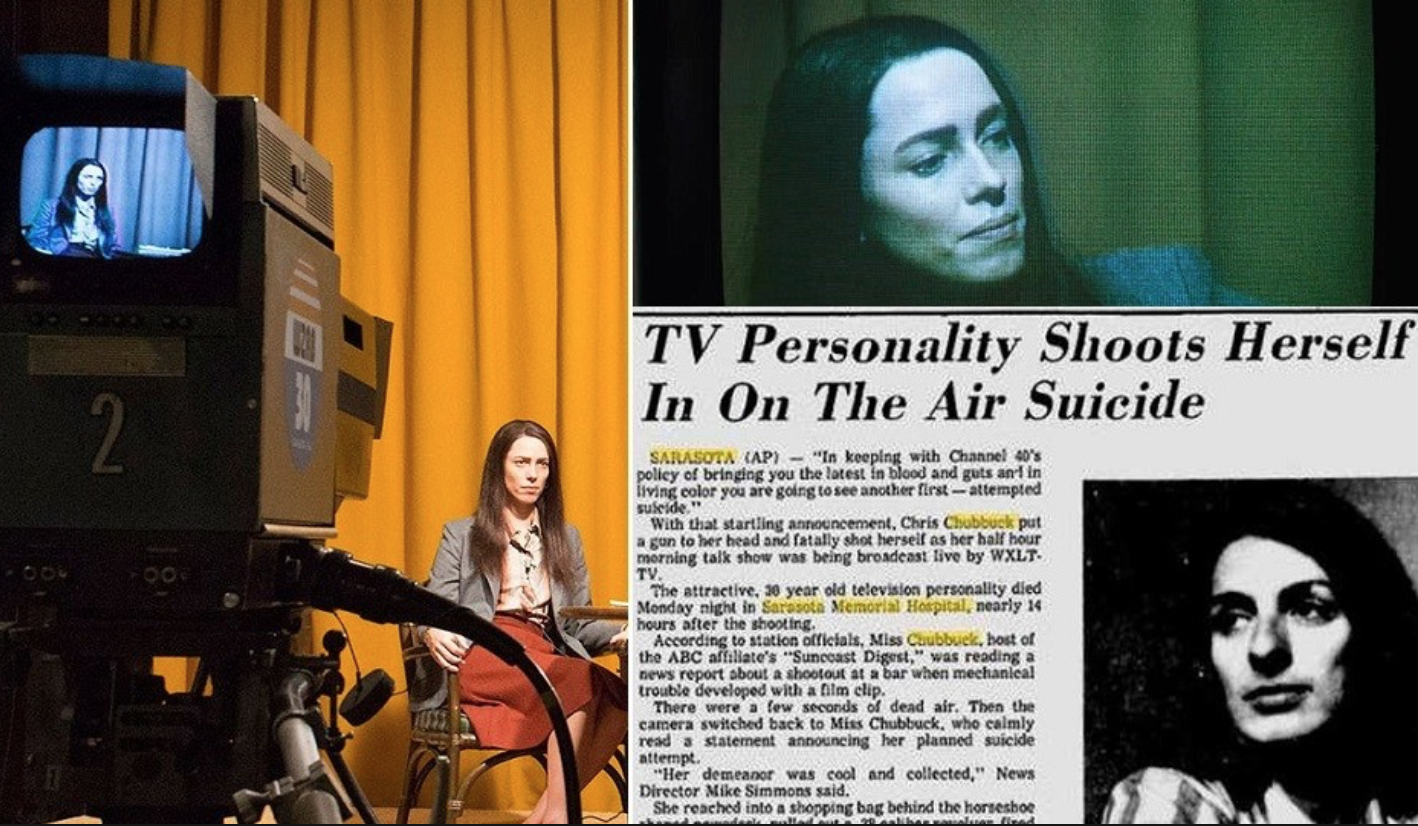Before the release of Antonio Campos’ 2016 film, Christine, Christine Chubbuck was the sort of footnote to a textbook about mass communications a journalist might explore further as a study in anomalous and unprecedented on-air events. And this is somewhat the trajectory of how screenwriter Craig Shilowich came into contact with the story–upon reading about it in online articles detailing the most shocking moments in live TV history. But with this tender, often affecting tale of a woman unraveling at the seams as her thirtieth birthday approaches, Shilowich’s (best known as a producer up to now) deft script brings the under appreciated reporter’s story to life with a candor and sensitivity the tale has never before known.
Set in Sarasota (before it became primarily known solely for being the site of where Paul Reubens masturbated in a movie theater) in 1974, our immediate portrait of Christine (played brilliantly by Rebecca Hall) is one of hard-working devotion, completely committed to telling her stories from a well-researched, humanistic angle. The head of the news room, Michael Nelson (Tracy Letts), is at constant odds with Christine’s approach to the news, berating her focus on the minutiae instead of finding more sensational material to drum up ever fledgling ratings. Her position as a field reporter is in direct contrast to the object of her affection’s, anchor George Peter Ryan (Michael C. Hall, another Hall in the mix, yes). Indeed, his seeming of lack of notice of her for anything beyond her intellect is, in large part, what drives her depression. This element, based in reality, is one of the many fictionalized pieces of Shilowich’s re-creation of the events leading up to Chubbuck’s on-air suicide. Using a combination of what he gleaned from Chubbuck’s network co-workers as well as his own experience with depression, Shilowich’s narrative tapestry does not make for an average biopic. And with Campos’ filmography speaking for itself in terms of careful, curated projects like his previous two films, Afterschool starring Ezra Miller and Simon Killer starring Brady Corbet, Christine is the strongest indication yet of what the director is capable of when working with complex material.
It’s a slow build to a moment we can feel coming at the cringe-worthy denouement. Christine’s daily routine is filled with lists and distractions including putting on a regular puppet show at a children’s hospital and ignoring incessant pain in her lower abdominal area. She later acquiesces to going to the doctor, where she learns that an unfortunately placed cyst requires her right ovary to be removed, diminishing the likelihood that she will ever have a child–which is one of the many long-held objectives of hers that seems to be ever-waning, including marriage and pursuing the journalistic work she’s impassioned about.
An oft alluded to breakdown while Christine was working for a network in Boston has put her in the position of needing to live with her “hippie” mother, Peg (J. Smith-Cameron), whom Christine frequently butts heads with in her moods of unpredictable rage (bipolar disorder still hadn’t been as readily diagnosed in the 70s). Adding to this humiliating state of existence is her virginity and looming thirtieth birthday. Her sadness is a constant energy, one that perhaps contributes to her getting stood up by a date as she watches another couple nearby relish their wine and spaghetti together. Overcome with emotion, she walks over to them and tells them to always appreciate what they have after offering to do a human interest story on them. This scar of loneliness and self-deprecation that Christine carries around with her contributes to her up and down elevator of melancholy and anger.
It is while Christine covertly purchases a gun that the seller informs her of a philosophy he holds regarding those who carry guns versus those who don’t. The former category is living in Condition: Orange, on high alert of their surroundings and ready to take on any enemy when the moment arises. The latter category, which he states most people live in their whole lives, is Condition: White. This means total oblivion to what’s happening around them and utter comfortableness in that oblivion. Clearly, Christine has never been able to atrophy in Condition: White, a contributing factor to why it’s so impossible for her to function as easily as others around her do. The owner of the station, Bob Andersen (John Cullum), who blows through town to poach a WXLT reporter for his Baltimore outlet, sums up the plight of Christine best by giving her the advice: “Don’t get hung up on every little thing… god knows life is hard enough as it is.” But for someone as earnest, intelligent and as much of a perfectionist as Christine, this advice is useless, something that she’ll never be able to heed and resultantly remain happy in pursuing her goals. But her eventual on-air demise begs the question, is the telecast of the revolution wasted on a population living in Condition: White–the only means by which to cope and survive in a world that has no interest in humanity and “opinionated” women?





















